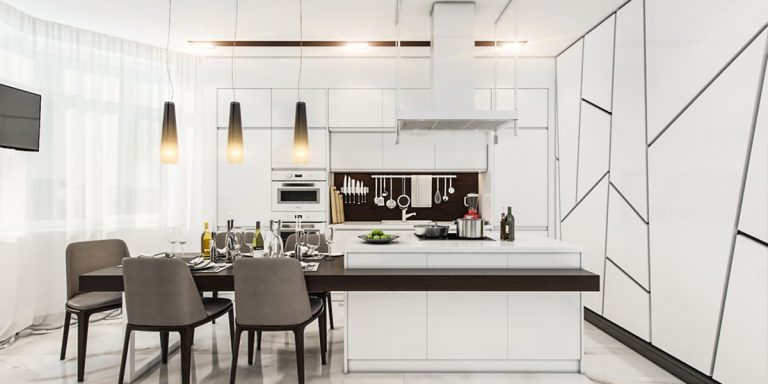Granite is a popular choice for kitchen benchtops and splashbacks. Its pristine white finish is appealing, but regular cleaning can prevent it from becoming stained.
Avoid using cleaners containing acid-sensitive materials such as lemon, vinegar, or ammonia. Also, avoid abrasive powders and scouring creams; they can damage granite’s sealant or surface.
Use a soft cloth
Granite is a hard, resilient material, but it’s not indestructible. It can be scratched by abrasive cleaning tools, and it can also be stained by harsh chemicals or cleaners. If you want your white granite to last for as long as possible, stick with mild and non-abrasive cleansers. This includes using a gentle cloth rather than steel wool, which can leave scratches.
Oil-based stains are particularly difficult for granite surfaces to remove. Try to avoid them by being vigilant about wiping down your counters after each meal and using a heavy-duty cutting board when preparing food. If you do get a grease stain, apply a baking soda paste and scrub it gently. Rinse and repeat if needed, until the mark disappears.
If you’re still struggling with stubborn stains, consider making a solution of 50/50 isopropyl alcohol and water and spraying it over the mark. Let it sit for five to ten minutes, then wipe it away using a soft cloth.
While it may be tempting to reach for natural cleansers like lemon and vinegar, these ingredients can etch and dull your granite and weaken its sealer. Also steer clear of scouring powders, abrasive creams, and ammonia. Even daily sunlight can wear down the shine of your granite, so consider closing blinds in areas where your countertop is exposed to it.
Soap and water
Using mild dish soap, water, and a clean cloth to wipe granite surfaces on a daily basis is a good way to keep your counters looking great. However, you’ll still need to wipe it dry afterward to prevent standing water from soaking into the stone and leaving hard mineral deposits or etch marks on its surface.
Other abrasive cleaners or DIY solutions can also damage natural stone, especially if they contain acids. So, if you want to avoid this problem, stick with a natural granite cleaner that is specifically designed for use with your countertop’s sealant.
If your countertops are showing signs of wear and tear, like a dull finish or the fact that water no longer beads up on it, you may need to have them resealed. This should be done at least every two-to-four years, depending on how much you cook and clean the granite.
To keep your counters looking as beautiful as possible, use coasters to catch spills and place hot pans on trivets that allow airflow. You should also use a cutting board to chop food on and avoid drastic changes in temperature, such as placing a cold drink on the warm granite. Finally, a regular touch-up with a spray of isopropyl rubbing alcohol can help kill germs and give your countertops a bright shine.
Baking soda
Granite is a sturdy material, but it’s susceptible to staining. Bleaches, vinegars, and many store-bought cleaners damage the surface of white granite, dulling the color and compromising the integrity of its sealant. To avoid these stains, use warm water and mild soap detergent for day-to-day cleaning and a gentle stone-specific cleaner weekly or monthly.
Water stains, also called hard water stains or limescale, occur when minerals in the water seep into the pores of the granite. Minerals cling to the granite and form an unsightly ring or cloudy area that can be difficult to remove.
Food stains are usually caused by greasy foods or oily hands. Wipe spills as they happen by blotting, rather than wiping, to minimize the spread of the spill. If you notice a water mark that doesn’t seem to be going away, mix baking soda with hydrogen peroxide to make a paste and apply it to the stain. Gently scrub the spot and rinse thoroughly.
If your countertop is severely stained, try using a non-abrasive pad, such as a microfiber cloth, to rub the residue. If this doesn’t work, dampen a paper towel with isopropyl alcohol and apply it to the stain; this should dissolve the grease. Repeat this step as needed until the stains disappear. Finally, be sure to seal your granite countertops annually to protect them from etching and staining.
Rubbing alcohol
Using rubbing alcohol as a granite cleaner may sound counterintuitive, but it’s actually a great solution. This specialized solvent helps to remove stubborn soap scum and mineral deposits while also disinfecting the surface. Fill a spray bottle with a 50/50 mixture of isopropyl alcohol and water, then apply it to the countertop surface with a soft cloth in a circular motion. Rinse with warm water and dry the counters thoroughly.
Another effective method of removing dark spots on your white granite is to use a baking soda paste. If the stain remains, apply a thick coating of the paste to the affected area and cover it with plastic wrap. Leave this on overnight, or even for a few days if necessary, and then wipe the spot clean.
It’s a cliche, but prevention really is better than cure when it comes to keeping your home’s countertops looking good and avoiding unsightly stains. Try not to rest mugs and glasses directly on the stone, for example, and make sure to use coasters if you do. It’s also best to blot up any spills as soon as they happen, rather than attempting a Herculean wipe and spreading the liquid around more broadly.
Visit Website: https://skstonesusa.com/granite/
Having professional cleaning services on hand can also help to keep your countertops looking their best. The team at your SK Stones USA can tackle those deep-down stains and help to restore your granite’s shine, so contact them today to find out more about their ongoing house clean services for homes in need of a helping hand!
Read More: https://readnewsblog.com/tips-for-selecting-quartz-surfaces-and-countertops/

